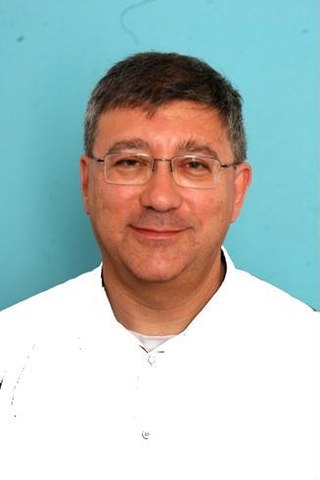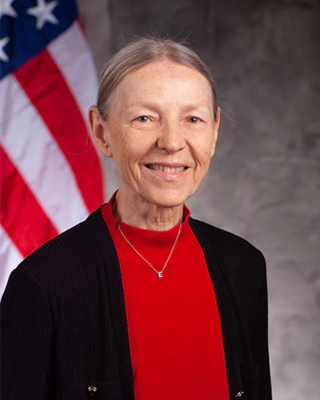Related Research Articles

Renato Marcos Endrizzi Sabbatini is a retired professor at the Department of Biomedical Engineering and at the State University of Campinas Institute of Biology. He received a B.Sc. in Biomedical Sciences from Medical School of the University of São Paulo and a doctorate in behavioral neuroscience in 1977, followed by postdoctoral work at the Max Planck Institute of Psychiatry's Primate Behavior Department. He founded the Center for Biomedical Informatics, and helped create the Brazilian Society for Health Informatics.
The International Medical Informatics Association (IMIA) is an independent organization that plays a role in promoting and furthering the application of information science in modern society, particularly in the fields of healthcare, bioscience and medicine. It was established in 1967 as a technical committee of the International Federation for Information Processing (IFIP). It became an independent organization in 1987 and was established under Swiss law in 1989.
Edward ("Ted") Hance Shortliffe is a Canadian-born American biomedical informatician, physician, and computer scientist. Shortliffe is a pioneer in the use of artificial intelligence in medicine. He was the principal developer of the clinical expert system MYCIN, one of the first rule-based artificial intelligence expert systems, which obtained clinical data interactively from a physician user and was used to diagnose and recommend treatment for severe infections. While never used in practice, its performance was shown to be comparable to and sometimes more accurate than that of Stanford infectious disease faculty. This spurred the development of a wide range of activity in the development of rule-based expert systems, knowledge representation, belief nets and other areas, and its design greatly influenced the subsequent development of computing in medicine.
Heimar de Fátima Marin is a nurse and a full professor at the Federal University of São Paulo (UNIFESP).

Yves A. Lussier is a physician-scientist conducting research in Precision medicine, Translational bioinformatics and Personal Genomics. As a co-founder of Purkinje, he pioneered the commercial use of controlled medical vocabulary organized as directed semantic networks in electronic medical records, as well as Pen computing for clinicians.
Margretta (Gretta) Madden Styles, EdD, RN, FAAN was an American nurse, author, educator and nursing school dean who conceived and helped establish national standards for certifying nurses in pediatrics, cardiology and other medical specialties. Dr. Styles was the president of the American Nurses Association from 1986 to 1988, and wrote five books and many articles published in medical journals.

Atul Janardhan Butte or Atul J. Butte is an American biomedical informatician, pediatrician, and biotechnology entrepreneur. He is currently the Priscilla Chan and Mark Zuckerberg Distinguished Professor at the University of California, San Francisco. Since April 2015, Butte has serves as inaugural director of UCSF's Bakar Computational Health Sciences Institute.
Harriet Helen Werley was an American nurse who made early contributions to clinical research and nursing informatics. Werley became the first nurse researcher at the Walter Reed Army Institute of Research and the Army Nurse Corps converted to a baccalaureate-prepared group under her leadership. She was a founding editor of Research in Nursing and Health. She co-created the Nursing Minimum Data Set in 1991.

Donald Allen Bror Lindberg was the Director of the United States National Library of Medicine from 1984 until his retirement in 2015. He was known for his work in medical computing, especially the development of PubMed. He won the 1997 Morris F. Collen Award from the American College of Medical Informatics.

Jan Hendrik van Bemmel is a Dutch former professor of medical informatics at the Vrije Universiteit Amsterdam and the Erasmus University Rotterdam. He was rector magnificus of the Erasmus University Rotterdam between 2000 and 2003.

Yuval Shahar is an Israeli professor, physician, researcher, and computer scientist.

Lucila Ohno-Machado is a biomedical engineer and Deputy Dean for Biomedical Informatics at the Yale University School of Medicine. She is an elected member of the American Society for Clinical Investigation and the National Academy of Medicine.

Betsy L. Humphreys is an American medical librarian and health informatician known for leading the cross-institutional efforts to establish biomedical terminology standards such as SNOMED CT and the Unified Medical Language System. She was the deputy director of the National Library of Medicine from 2005 until her retirement in 2017, serving as acting director from 2015 to 2016.

Dean Forrest Sittig is an American biomedical informatician specializing in clinical informatics. He is a professor in Biomedical Informatics at the University of Texas Health Science Center at Houston and Executive Director of the Clinical Informatics Research Collaborative (CIRCLE). Sittig was elected as a fellow of the American College of Medical Informatics in 1992, the Healthcare Information and Management Systems Society in 2011, and was a founding member of the International Academy of Health Sciences Informatics in 2017. Since 2004, he has worked with Joan S. Ash, a professor at Oregon Health & Science University to interview several Pioneers in Medical Informatics, including G. Octo Barnett, MD, Morris F. Collen, MD, Donald E. Detmer, MD, Donald A. B. Lindberg, MD, Nina W. Matheson, ML, DSc, Clement J. McDonald, MD, and Homer R. Warner, MD, PhD.

Elaine Lucille Larson is an American infectious disease specialist. As a Professor of Epidemiology at the Columbia University Mailman School of Public Health, she has published four books and more than four hundred articles on the subjects of infection prevention and control, disease epidemiology, and related issues. In 2017, Larson was named a "Living Legend" by the American Academy of Nursing, the Academy's highest honor.

Marion Jokl Ball is a South African-born American scientist, educator, and leader in global Biomedical and Health Informatics. She holds the Raj and Indra Nooyi Endowed Distinguished Chair in Bioengineering, University of Texas at Arlington, is Presidential Distinguished Professor, College of Nursing and Health Innovation and serves as the Founding Executive Director, Multi-Interprofessional Center for Health Informatics (MICHI), University of Texas at Arlington. She is Professor Emerita, Johns Hopkins University School of Nursing and Affiliate Professor, Division of Health Sciences Informatics, Johns Hopkins School of Medicine. A member of the National Academy of Medicine (NAM), she is a pioneers of Informatics in Nursing and in Medicine and a founding member of the Technology Informatics Guiding Education Reform (TIGER), a global grassroots initiative that formalized in 2006 to enable nurses and later, the multi-interdisciplinary healthcare workforce in 34 countries to best make use of Health Informatics principles, methods, tools, and resources. Ball is the author/editor of over 35 books and over 200 articles in the field of Health Informatics.

Morris Frank Collen was founder of the Kaiser Permanente Division of Research and an original member of the Permanente Medical Group, pioneering developer of Automated Multiphasic Health Testing (AMHT) systems, and Electronic Health Records (EHRs) for Public Health and Clinical Screening, serving as a model for pre-paid healthcare at the national level. Collen was a Founder of the American College of Medical Informatics (ACMI) in 1984, and the American Medical Informatics Association (AMIA) in 1989. The Morris F. Collen Award of Excellence was established in his honor by ACMI in 1993. In 1971 Collen was elected a member of the Institute of Medicine of the National Academy of Sciences.
Charles Safran is an American-born physician, biomedical informatician, and professor, who is known for his work regarding the use of health information technology (HIT) to improve the delivery and quality of healthcare, in particular clinical information systems.
Judith J. Warren is an American nurse, educator, and researcher, known for being a pioneer in the field of nursing informatics. Her work has focused on integrating nursing science, information technology, and patient care. She holds the title of professor emerita at the University of Kansas School of Nursing.
Morris F. Collen Award of Excellence is the highest honor presented by the American College of Medical Informatics. It is awarded annually to "an individual whose personal commitment and dedication to biomedical informatics has made a lasting impression on healthcare and biomedicine". The award was established in 1993 to honor Morris F. Collen, the founder of biomedical informatics, and was also the recipient of the first year's award. Recipients of this award have made significant contributions to medical informatics research, education, or leadership, advancing healthcare through innovative uses of information technology.
References
- ↑ Henry SB (1989). The effect of level of patient acuity on clinical decision making by critical care nurses with varying levels of knowledge and experience (Thesis). UCSF.
- ↑ "American Nurses Foundation Scholars, 1955 – 2015" (PDF).
- ↑ MacMillan L (4 December 2014). "Columbia's Bakken to deliver Flexner Discovery Lecture". Vanderbilt University. Retrieved 2023-10-26.
- 1 2 3 "Professor Bakken named IOM Nurse Scholar in Residence". Columbia School of Nursing. 2015-08-31. Retrieved 2023-10-25.
- ↑ "RHeaDI Fellowship Program". Columbia School of Nursing. 2019-10-15. Retrieved 2023-10-26.
- 1 2 Stead WW, Flatley Brennan P (October 2023). "Celebrating Suzanne Bakken, 2023 Morris F. Collen Award winner and pioneer in health equity". J Am Med Inform Assoc. 30 (11): 1760–1761. doi: 10.1093/jamia/ocad189 . PMC 10586030 . PMID 37855452.
- 1 2 "SUZANNE BAKKEN, R.N., PH.D., FAAN, FACMI" (PDF).
- ↑ "Suzanne Bakken, RN, PhD | AMIA – American Medical Informatics Association". amia.org. Retrieved 2023-10-26.
- ↑ "Subcommittee Member Biography: Suzanne Bakken". www.ahrq.gov. Retrieved 2023-10-26.
- ↑ "Virginia K. Saba Informatics Award | AMIA – American Medical Informatics Association". amia.org. Retrieved 2023-10-25.
- ↑ "Suzanne B. Bakken, PhD, MS, BSN, FAAN, FACMI, FIAHSI". Herbert Irving Comprehensive Cancer Center (HICCC) – New York. 2020-09-18. Retrieved 2023-10-26.
- ↑ "Helen Nahm Research Lecture Award". UCSF School of Nursing. Retrieved 2023-10-26.
- ↑ "Sigma announces 2018 International Nurse Researcher Hall of Fame inductees". nursingcentered.sigmanursing.org. Retrieved 2023-10-25.
- ↑ admin. "IMIA François Grémy Award of Excellence". IMIA. Retrieved 2023-10-25.
- ↑ "Suzanne R. Bakken, PhD, RN, FAAN, FACMI, FIAHSI, to be Awarded Morris F. Collen Award of Excellence at the AMIA 2023 Annual Symposium | AMIA – American Medical Informatics Association". amia.org. Retrieved 2023-10-25.